The cast of ‘Hotel Mumbai’ relive the harrowing event for the big screen
Los Angeles — When the Taj Mahal Palace Hotel in Mumbai, India was attacked by terrorists in 2008, the world watched in horror and disbelief.
“Hotel Mumbai,” which is about the victims and survivors of the horrific attack, is the action thriller helmed by Anthony Maras and written by John Collee and Maras.
Based on the 2009 documentary “Surviving Mumbai,” the film stars Dev Patel (Arjun), Armie Hammer (David), Jason Isaacs (Vasili), Anupam Kher (Chef Hemant Oberoi) and Nazanim Boniadi (Zahra).
We recently talked to the cast and their experience filming the movie and below are excerpts of our conversations with them:
Dev Patel
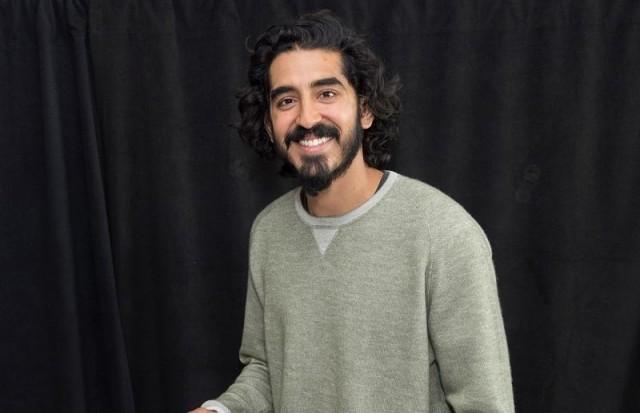
Is this a painful story to tell?
Oh of course. It was one I wanted to be a part of. It was probably one of the most grueling things I have done off camera and you have to dig really deep and there are certain strides in the form.
I don’t have a child or things like that. So to put yourself in a situation where you are a parent and you have to go outside in the real world, there was just a line at the end of the movie, in the script, this wild man returns to his humble home in the slum, and it’s never been more appealing to see his wife and his child and to be reunited with his family and that just struck a chord in me.
So you are British, not Indian. What defines you? What experiences make you feel more Indian or British because you grew up in that culture?
I don’t know. It’s so weird, I don’t just identify as being British. My grandparents don’t speak English, so I speak Gujarati to them. I feel I am a product of two cultures and I feel a responsibility to make movies like this so I can bridge these two worlds, these two cultures that are in my DNA together, because there are many people like me around the world. So yeah, I don’t know which side I relate to more.
What do you think is misunderstood about the city of Mumbai? Being overcrowded? what do you think would be the essence of the city?
A lot. That thing of about being overcrowded is its biggest strength, the humanity is what takes your breath away. Being swept up in a tide of humans is contrast at its highest, the juxtaposition in every way.
It’s how quickly that city is developed since India has gotten its independence and how fast it’s moving is breathtaking. It’s so diverse and exciting to me every time I go. That was one of the reasons why I wanted to play a Sikh, my first leading role in Mumbai was playing a young Muslim role in “Slumdog Millionaire” and then I played this Indian hotelier and played this mathematician from the South and the Sikh guy. I don’t know, it’s beautiful.
I hope this film is an anthem of its humanity when you watch it and the people within it and the staff, and guests. I truly believe when you go to India you will find some beautiful people and they are proud of their country. They should be. It’s great.
Armie Hammer
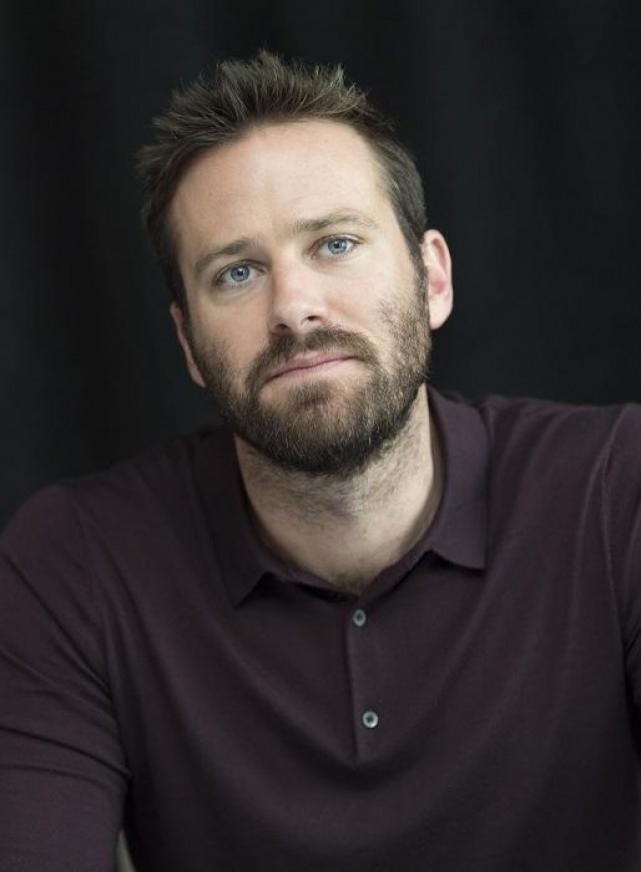
You put us really through hell in this film. Let’s start with who your character is. Is he a person who really existed or is he partly invention?
The character that I play, David, he's sort of an amalgamation of two people who were there. One of them was a tourist and the other one was there with his wife and so he's not exactly a real person. Most of the people in the movie are the real people but mine was sort of a combination of two people that they put together.
Did you get to talk to any of the survivors? Talk about the research that you did for the role.
A friend of mine is cousins with someone who was at the hotel during the attacks so I could have reached out but respectfully I just didn't think that after going through something like that they needed an actor to come, knock on their door and be like hey, I've got a bunch of questions for you. It felt insensitive on my part plus director Anthony Maras is really like a research-based director.
So when we showed up in Adelaide, he had thousands of pages and news clips and interviews and all of the stuff that he had compiled so we really had access to all of that without needing to bother survivors.
How familiar were you with the story? Have you ever stayed at the Taj Mahal?
I remember it happening. I remember watching it on the news and seeing it unfold but I wasn't aware of all the details. I wasn't aware of the sacrifices that the hotel staff made. I wasn't aware of exactly how everything went down. It was just this thing that was happening in Mumbai. I knew about it but I didn't know all the details.
No, I've never stayed at the hotel. I did go and visit the hotel when we were filming in India. I went with Nazanim Boniadi, Tilda Cobham-Hervey (who portrayed the nanny Sally) and Jason Isaacs and we went and had brunch at the hotel because we just thought we wanted to go see it. We walked in and right when you walk in is a large wall with all of the names of the people who died in the attack. We all just started crying. We were like God, it's really intense.
Jason Isaacs
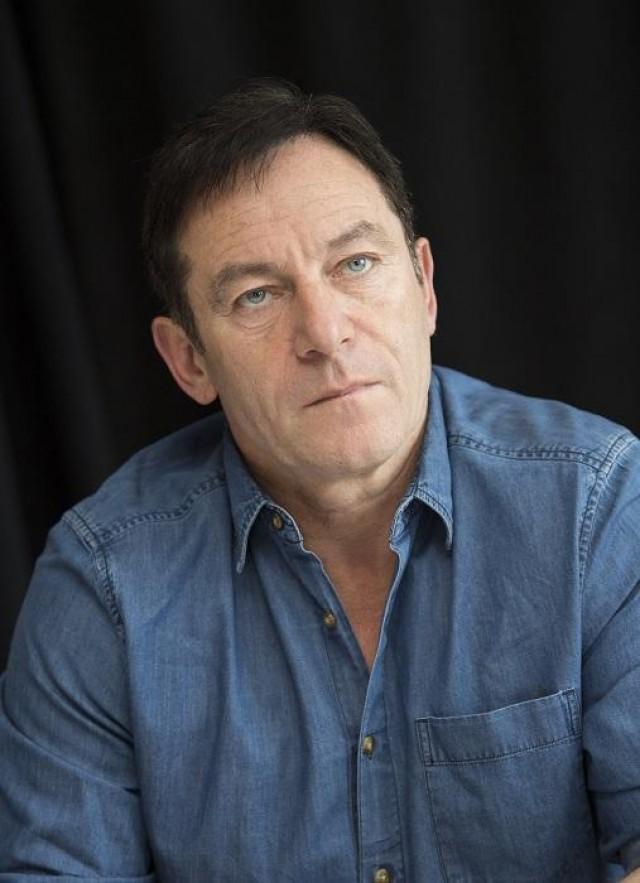
Was your character real or was he based on somebody else?
Anthony (Maras), and John (Collee) spent about a year meeting many survivors, and the staff, and looking through the transcripts. Even before I came to this film, I met numbers of people who had either been there or had friends there or relatives there. He's an amalgamation of a couple of people. I've been lucky enough to be able to talk to some survivors and people in the hotel, or relatives of the people who perished there, and so every element of his life and his history was represented in the hotel, but he's a consolidation of some people.
The challenge for me, and for all of us, which I hope that we rose to, was to make sure we didn't do anything Hollywood. That nobody reacted in a way that you would if it was a "Die Hard" movie, and we reacted with a real sense of terror, fear, panic, and the rest of it. Anthony helped to create that atmosphere on the set, and we all did our best job because we were aware of the responsibility of recreating this real-life thing.
My character is — I'm not going to say he's less afraid than the other people, but he's been through similar things. I don't want to give away the secrets, but he's had a life, and he has a very different attitude toward what's going on around him than the others. Again, I just made sure that I spoke to people and found out what they were thinking.
There were Special Forces people there, for instance, and other people in the hotel, and try to ground it in what I thought he would be thinking, feeling, hoping and fearing. Also, he's a very macho Russian. It's very important to him not to project any sense of fear, and to be seen not to panic, as well, because of who he is and his own sense of pride.
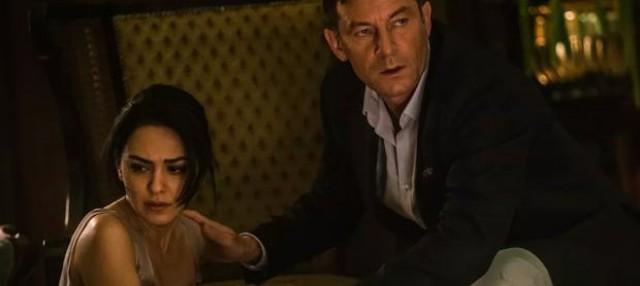
So, I filtered into it the things that I found out from people. Acting is an easy job; all you have to do is be that person in that situation with their life history. So, I tried to program it all in and then let it go and react to what was going on around me and how people were behaving.
Have you ever been to the Taj?
I have. We were lucky enough to go to India, and I went not only to the Taj, but to Café Leopold and went to the other places, The Jewish Care Center and the station. It reminded me of my experience doing "Black Hawk Down," where I went to train with the Rangers in Fort Benning, and I met the survivors and the families of the dead. That very keen sense of responsibility you have to portray these things in an honest way. Because this is this very, very rare occurrence.
The movie business has been creating stories, inspiring, uplifting stories forever, and we all look at them, and we recognize how far they are from our own life experience. But this is a time that the real world threw up a perfect example of what we're capable of as human beings, and the selflessness and generosity of overcoming fear and behaving in ways that are truly courageous, not mock-Hollywood courageous. And we all felt this very powerful sense of responsibility to make sure that we got out of the way of the story of these people, who we knew had done these things that have a very resonant message, particularly at these times.
Oddly, for a story in which harrowing things happen, it was incredibly positive. Not in the experience of making it, because we are spending every day as close as we can imaginatively being terrified, but we felt we were part of a positive story to put out in the world. I was about to go away with my family on a long, long-planned trip to Peru, the Machu Pichu Trail.
I always happen to be working over the summer and school holidays, we never get to be together, and finally I wasn't working. We had the whole trip planned, and the script came in and I thought, it's one of the reasons you become an actor if you're lucky enough to be part of stories like this that put this out in the world. I'm afraid I abandoned the family to go to Australia and India.
Anupam Kher
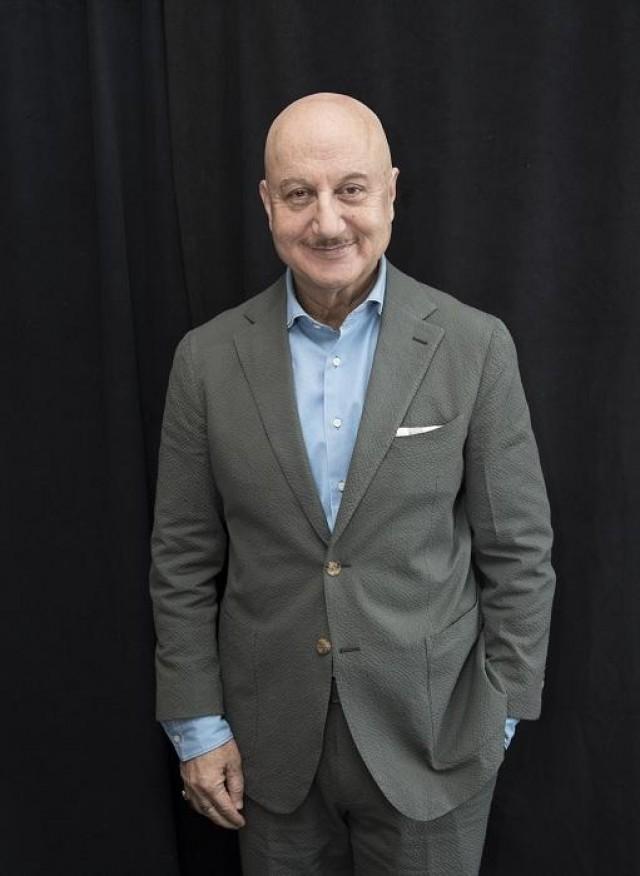
Was your character an amalgamation of different people?
Chef Oberoi is a character who is still there, and he was at the Taj Hotel. I had met him before that, as a regular guest at a hotel at a restaurant called Wasabi and met him, he knew that I was Anupam Kher and I knew that he was the head chef, but that was all.
When Anthony came to me and told me I had to portray Chef Oberoi, I did not want to get into that syndrome of me being him and asking him what he felt, because I didn’t want to be insensitive about making him relive the whole thing just because an actor needed to do research. There was a lot of material given by Anthony himself, and there was a lot of material in the book, and I was there when this attack happened. So, I have lived through this and have friends who have lost their relatives.
A very dear friend of mine who was the general manager of the hotel at that time, he lost his wife and two children in that attack, while he dared to come and spend a night in the hotel.
So, for me, any kind of sad situation, you don’t need to do research. There is an innumerable amount of stories that you could see what they went through. But when it comes to playing a role, you have to think about what was important and not exactly looking like him or being like him.
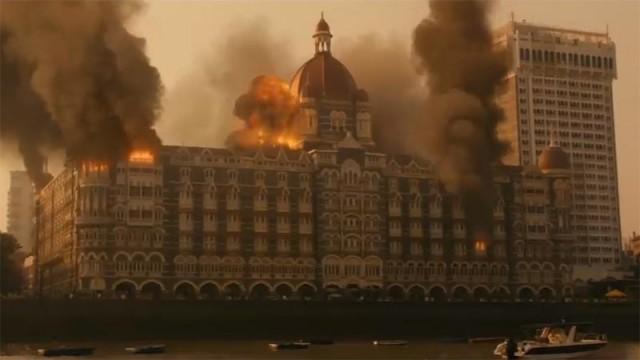
But the ultimate compliment came from him at the end of the film when he had a show at the Toronto Film Festival, and he was sitting in the audience, and he was the hero.
At the end of it he told me, I hope I was okay, and he said nobody else could have done it better. But I did not feel very glorified about it as an actor. I just felt thank God. So yes, it was one of the most traumatic experiences I’ve had as an actor, but it’s important to tell these stories.
Can you talk about your reaction when you got the script?
I was shooting on the 2611, I was shooting about eight kilometers, eight miles away from where all this started. Initially, we thought that it was a gang war happening in South Mumbai because of gunshots and things like that, and then slowly, slowly, it dawned on us that it was a terrorist attack, because there was another hotel which was attacked. And then it was a horrifying 72 hours of reality television, but the fact was that it was true, and people were dying, and people were getting affected by it.
So when Anthony mentioned to me that he was making this film, to me it was important that the person making this is showing it and doing it with all his compassion towards the people because I thought he’s an Australian and I am sure he must have researched very well, and he will do it very well.
But he was so passionate about it, and his need to tell the story was so honest that I said I want to be a part of the film. But we all ended up in Adelaide as actors from various regions, and we are actors, and now we are going to meet and work together. But the whole exercise was emotionally very draining because he wanted us to go through all that image.
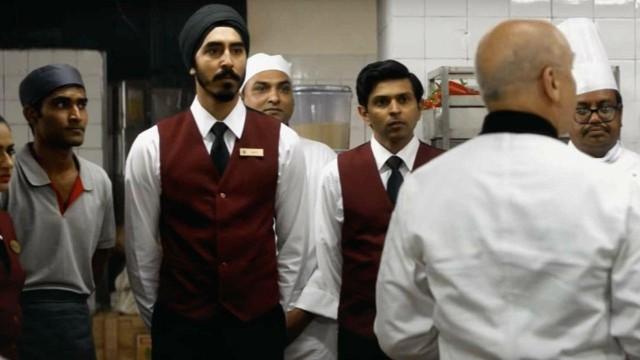
How was it working with Dev Patel?
A lot of people have asked me about working with Dev, but I usually say, ask Dev how it was working with a person who has done 500 films. But with him, he’s the kind of a person who you can say was love at first sight. He’s a wonderful human being, and he’s a great guy. I had only seen one film of his before, “Slumdog Millionaire” and from there to this film and I worked with him. He has matured as a person and as an actor. He has a great quality and a sense of wonder in wanting to do things. I hope that he thinks that when he is doing his 500th film, which I am sure he will continue to do. He’s wonderful, and he’s a wonderful actor to work with. He has a lot of energy.
Nazanim Boniadi
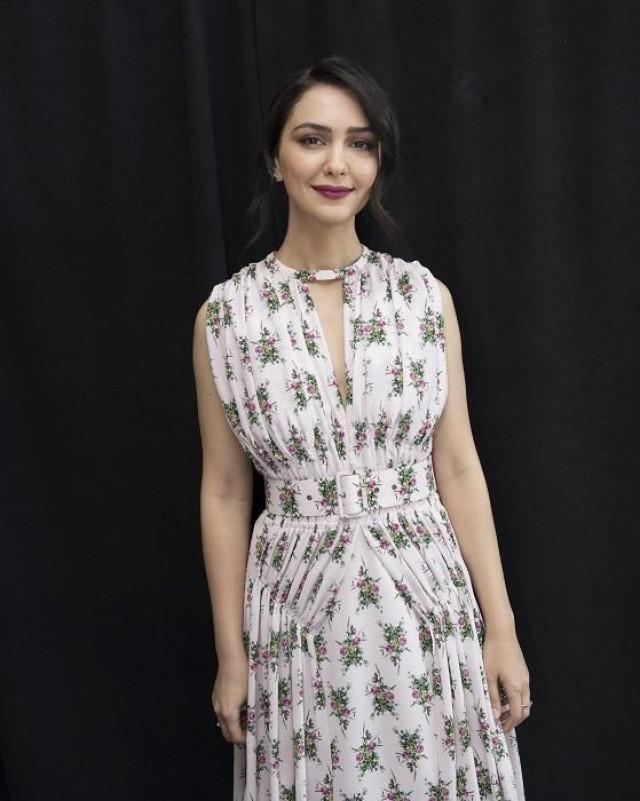
Who was your character based on?
My character was based on two different people: a Turkish woman, and an Iranian woman. The people were portrayed in “Surviving Mumbai” the documentary, and also there are accounts and testimonies that Anthony researched. But I will tell you that the prayer scene, my prayer scene, where I am staring the gunman down, is based on something that actually happened.
So yes, there is creative license, and maybe this Zahra person didn’t exist, but it is definitely drawn from real experiences that occurred.
So was there a baby?
I don’t think there was a Zahra with a very handsome American husband and a baby. But it’s drawn from people who actually exist. So, it’s a composite character.
Can you tell us where you were when this incident happened 10 years ago, and what do you remember? Did you watch it on TV?
Yeah, I did watch it on TV. I was in the States at home, and I remember feeling horrified. It was right when I started my serious advocacy work. I am a big human rights activist for Iran. But I am very connected to humanity, and I feel like I have a lot of empathy.
When I got the script, I remember thinking wow, I had forgotten about this. We got the script in 2016, and that is when we started filming. To think that something this tragic can happen, but because it’s so far removed from people here, and I didn’t have any relatives or friends who were affected by it, there is this sense of removing it from your consciousness, just to be able to get on with your day.
We deliberately desensitize ourselves, not because we are just bombarded on a daily basis with just these tragic things happening around the world, but because we need to live our lives. But when you are reminded of it, and you realize these things continue to happen. Unfortunately, they continue to happen today. Unless we sit uncomfortably and watch these images, we will never really find a solution for them because we push them out of our minds.
I think the takeaway from the film is let’s not forget that these things are continuing to happen and let’s find the reasons, the abject poverty, and the lack of education that is driving people to become radicalized and try to find a solution for that.
And also, it shows that sometimes the darkest events in humanity can bring out the very best in us.
What was it like when you visited the hotel?
As far as the Taj goes, it was a group of us who went to the Taj. We ate at the Shamiana, and there was a moment where all of the electricity went out. We were eating, and all the lights went off. We were scared because we remembered the shooting, so we felt the fear of what’s happening, something is happening. I remember the wait staff just came to us immediately, so sorry this is happening, and the care, the attention to detail. It was just a personification of what was being represented in our film. I thought wow, we got this right because the staff at the Taj was just so responsive and immediately on it. But it was scary because in that moment we didn’t know what was going to happen and we were living that life as those characters. So, it felt eerie. But a lot of the tone of the film is absolutely spot on. — LA, GMA News




